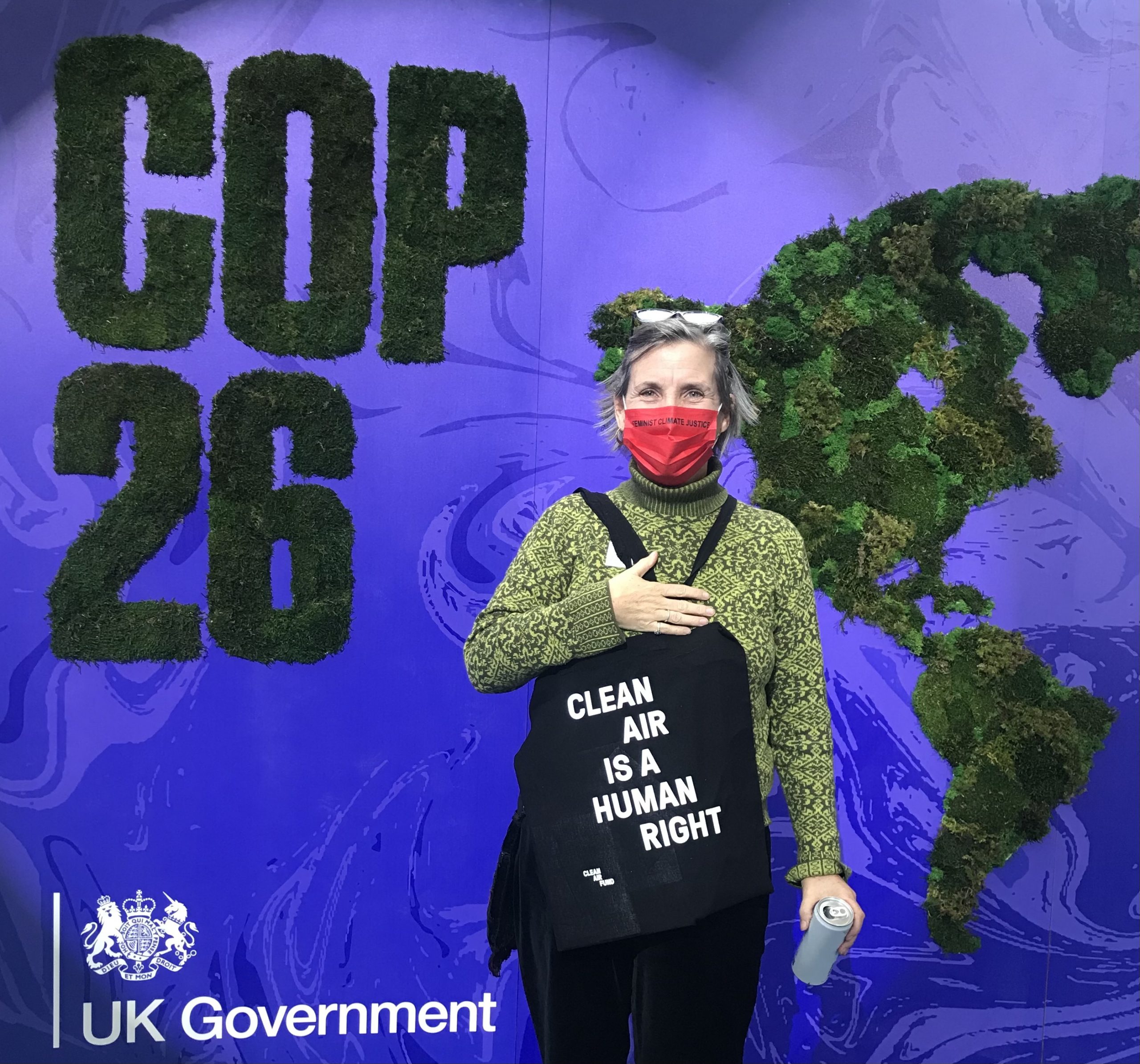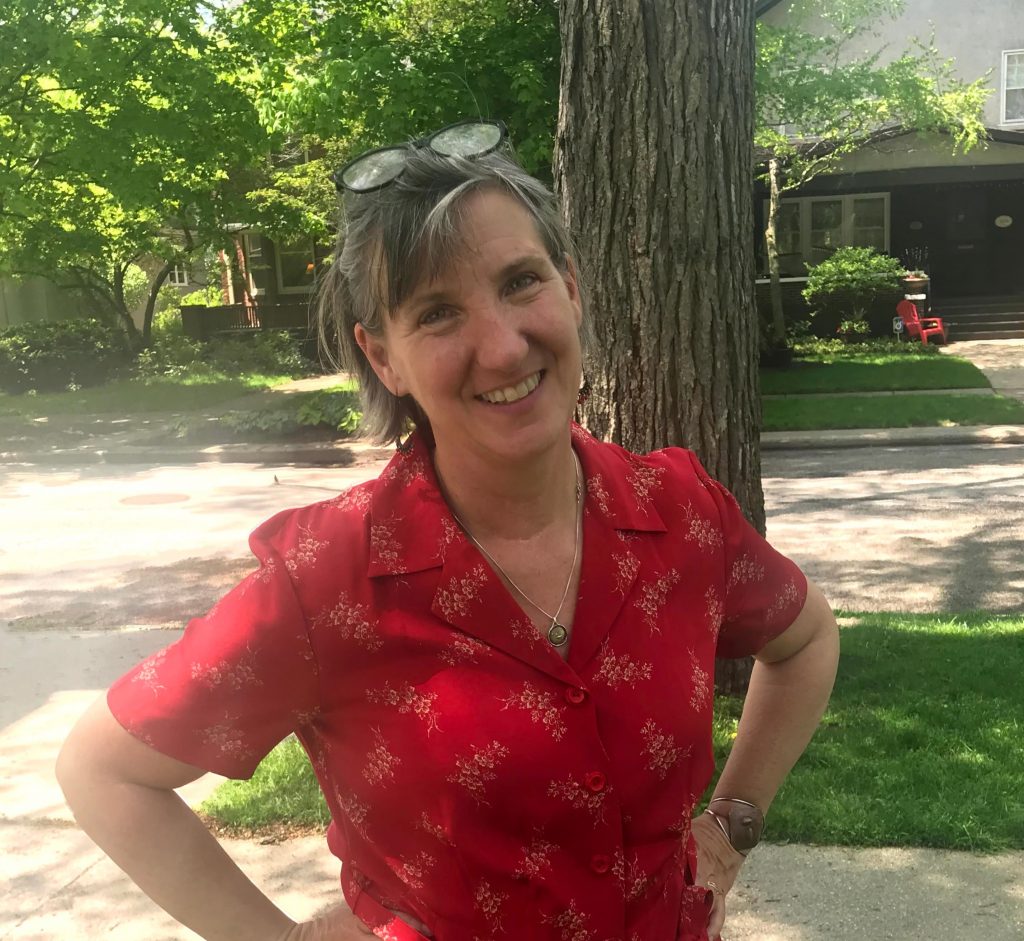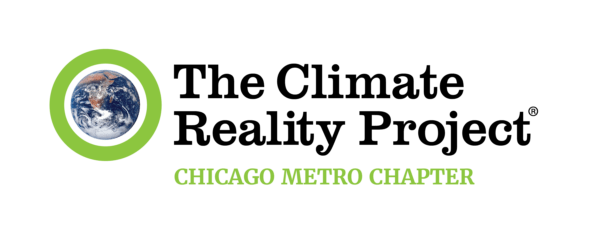
Going to Glasgow with Rachel Rosner
Dec. 8, 2021
A Q&A edited by Jane Goldenberg
Rachel Rosner, program consultant for It’s Our Future, a youth-driven climate justice program of Seven Generations Ahead, chaperoned a youth delegation to COP26 — Conference of the Parties — the UN Climate Change Conference in November. Rachel is a Climate Reality Leader, who was my mentor at the Minneapolis training in 2019.
One aspect of the conference that left a strong impression on Rachel was the presence of a large contingent of delegates representing the fossil fuel industry, especially compared to the lower representation from small nations most vulnerable to climate change.
According to an analysis by Global Witness, 503 people with links to fossil fuel interests were accredited for the climate summit, more people than any one single country. About 40,000 people attended COP. Brazil, with 479 delegates, had the largest official team of negotiators, according to UN data.
JG: Tell us a little about It’s Our Future
RR: We lift up youth voices in the face of the climate crisis, primarily by supporting them in speaking at council and board meetings in their communities and schools, writing op-eds and presenting at events, such as the One Earth Film Festival.
JG: Can you provide some background about how this trip happened?
RR: It’s Our Future is the brainchild of Gary Cuneen, the executive director of Seven Generations Ahead. He and others submitted a proposal to the Oak Park Community Foundation as part of a “Shark Tank” style program, and they won! Included in this grant was funding to take students to COP. In 2019, the program was brand new, and Gary went to COP25 in Madrid along with Oak Park Middle School teacher, Laura Stamp and her daughter, Roz, then a senior at Oak Park and River Forest High School. (There was no COP in 2020 due to Covid-19).
Our delegation was in Glasgow for the first week of COP26. Some of us took the opportunity to explore Scotland before or after the conference. The students had their own individual chaperones, as well; most traveled with a parent, and one traveled with a teacher.
The goal of bringing local youth activists to this global summit on climate change was for them to witness, connect and report back on climate policy, impacts, activism and to inspire others to engage in this essential work.
JG: What was the goal of this group attending COP?
RR: The goal of bringing local youth activists to this global summit on climate change was for them to witness, connect and report back on climate policy, impacts, activism and to inspire others to engage in this essential work. (It’s working!)
Watch a recording of our special program, A Youth Perspective on COP26, in which members of this delegation — Jelena, Sophie, Charlotte and Lily — speak about their experiences at COP26.
JG: How were the students selected?
RR: We wanted juniors or seniors, who were passionate climate activists. The three Oak Park students, Jelena Collins, Sophie Ball and Charlotte Meyer, have been very active with It’s Our Future from the beginning. I knew Lily Aaron from her work in Evanston as the hub-coordinator for Etown Sunrise and as a youth board member of Citizens’ Greener Evanston, where I’m board president. The Mather High School student, Ali Khan, was selected by his teacher who has been working with Gary and Seven Generations Ahead on CPS goes Solar.
JG: How did you prepare for the trip? Did you have meetings set up ahead of time?
RR: Indeed! There were meetings! There were logistical meetings with parents about Covid protocols, flights and lodging, conference access and more. There was a great meeting with our communications director, Liz Lukehart, who provided interview tips, followed by more meetings about the best ways to communicate what we learned. We had meetings with our partners at the One Earth Film Festival, which co-hosted our wonderful live stream event. We had one in-person meeting at a café in Oak Park which was of course the best meeting since the youth were able to really connect.
JG: What was your itinerary like in Glasgow?
RR: It was somewhat varied and fluid. The first couple of nights we met as a whole group to plot and debrief. Youth would get up early and take a mandatory Covid test each day! Most days they would head to the “Blue Zone,” which is a massive convention center with numerous “pavilions.” The Blue Zone required official badges. Represented countries had pavilions, but there was also a water pavilion and a people pavilion. Pavilions were the size of a small classroom, and everyone was provided headsets for translation. Also in the blue zone were plenary sessions and some closed door sessions, where negotiations took place.
JG: Describe some of the most impactful moments you experienced.
RR: It was wonderful to be in a town with tens of thousands of people who understand and care about the climate crisis. I attended a wonderful session with women farmers from Nigeria talking about the importance of women’s voices in this movement, as they are most often on the front lines of climate impacts.
Our live stream event was another highlight. My job was to figure out a location and to ensure that our youth had some youth activists from around the world to interview. I was on a great What’sApp Chat with the US ACE Coalition* (Action for Climate Empowerment), and through them I learned about an event, where youth would be presenting at the Marriott, followed by a reception. So we pivoted quickly and found a corner of the hotel restaurant, and Lily and Ali were able to interview a young woman from the Seychelles and an Indigenous youth artist from Panama, both of whom were excellent!
JG: Describe some of the most interesting conversations or people you met.
RR: On Tuesday our whole crew was invited to an offsite venue by Uili Luis, the delegate from the Pacific island of Tonga. He presented there with an architect colleague about a pavilion they are working on that will be a meeting place for youth activists. Afterwards, our students interviewed Uili. Ali asked him for advice for youth climate activists and Uili said “Say hi” and elaborated that this work must be done in relationship, and we have to be as inclusive as possible.
JG: What do you take away from COP26?
RR: The fact that there was such a heavy presence from the fossil fuel industry, while many representatives from the most impacted countries were unable to attend due to vaccine apartheid or were denied a seat at the table once they did get to Glasgow, is profoundly disheartening and goes a long way toward explaining why the end result of COP26 was less than satisfactory at best.
However. The number of brilliant, passionate, compassionate individuals and organizations who are doing this work, day in, day out, hand-in-hand, is enough to keep me in the game, and to renew my commitment to climate justice work.
JG: Final thoughts, inspirations, lessons?
RR: Our work has never been more important. The climate crisis is a justice issue at its very core. We have to do it together.
Get involved!
If you know a high school student in Oak Park, River Forest, Evanston or Chicago who is or would like to be a part of this movement, please send them my way! iof@sevengenerationsahead.org @iofyouth on Instagram.
Resources
US ACE: Action for Climate Empowerment (ACE) is described in Article 6 of the United Nations Framework Convention on Climate Change and Article 12 of the Paris Agreement.
ACE recognizes the transformational power of education, training, public awareness, public participation, public access to information, and international cooperation working in coordination. By breaking traditional silos between academia, the workforce, community organizing, youth, science, and communications, an ACE strategy can reach all of society in ways that are relevant to them, empowering them to take just, effective, community-based action to address the climate crisis.
ACE, in its UN definition, includes special focus on youth and a sensitivity to gender differences in the experience of and capacity to react to climate change. In our implementation in the U.S., we expanded this focus to include race, income, geography, and other dynamics that impact people in this country in relation to climate change.

Rachel Rosner is the Program Consultant for It’s Our Future, a youth-driven climate advocacy program of Seven Generations Ahead. As a person who cares deeply about children and youth, about nature and about justice, Rachel was inspired to become a Climate Reality Leader and mentor, and the president of Citizens’ Greener Evanston. Rachel’s daughter, Bella Hubbard, is also a Climate Reality Leader, and together, with other youth and parents, they started what became Etown Sunrise.

